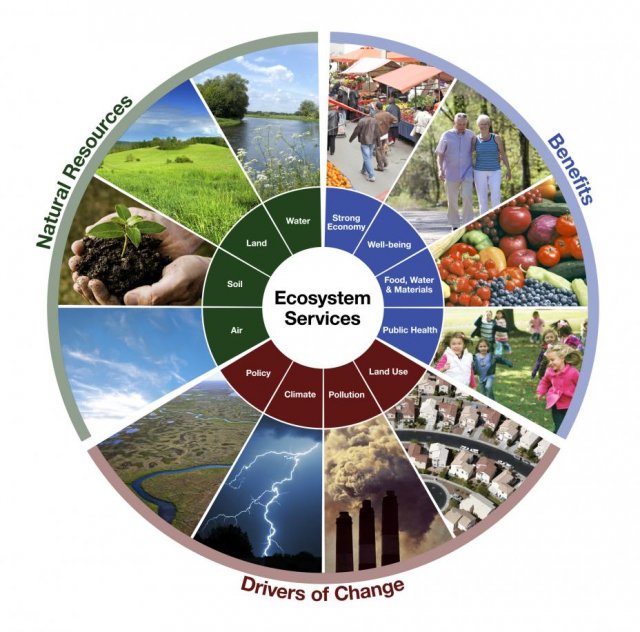Ecosystem Services - EnviroAtlas
Overview
What are ecosystem services, and why are they important?
- Ecosystem goods and services, often shortened to ecosystem services (ES), are the benefits that humans receive from nature. These benefits underpin almost every aspect of human well-being, including our food and water, security, health, and economy.
- Many of the decisions we make, from how to develop community infrastructure, to managing the land surrounding our communities, impact the provision of ES.
- We are not always conscious of the links between our surrounding environment and our well-being, and thus we may not always take the true value of ecosystems into account in our decision-making processes.
- Considering the true value of ES in our policies and decision-making could help us better manage our resources in a way that would benefit us economically, environmentally, and socially.
- EnviroAtlas provides information about ecosystem services such as maps and geospatial data. Decision-makers can use this information in a variety of ways. For example, EnviroAtlas data has been used to support conservation planning, to understand the benefits of ecosystems for public health, and to implement nature-based solutions such as planting trees to lower the urban heat island effect.
- One approach to safeguarding ecosystem services is through incentive mechanisms for conservation, including markets. With ecosystem services markets, companies, communities, and other beneficiaries pay landowners and managers to protect, restore, or mitigate for impacts to ecosystems. Learn more about ecosystem markets and data.
- Learn more about how ES are classified, measured, and valued.
EnviroAtlas Ecosystem Services Benefit Categories
EnviroAtlas uses seven broad benefit categories to organize its information and data on ecosystem services. Use the links on the right to learn about the provision of each of these services, stressors and impacts, as well as their linkages to human health and well-being.

- Clean Air
- Clean and Plentiful Water
- Natural Hazard Mitigation
- Climate Stabilization
- Recreation, Culture, and Aesthetics
- Food, Fuel, and Materials
- Biodiversity Conservation
